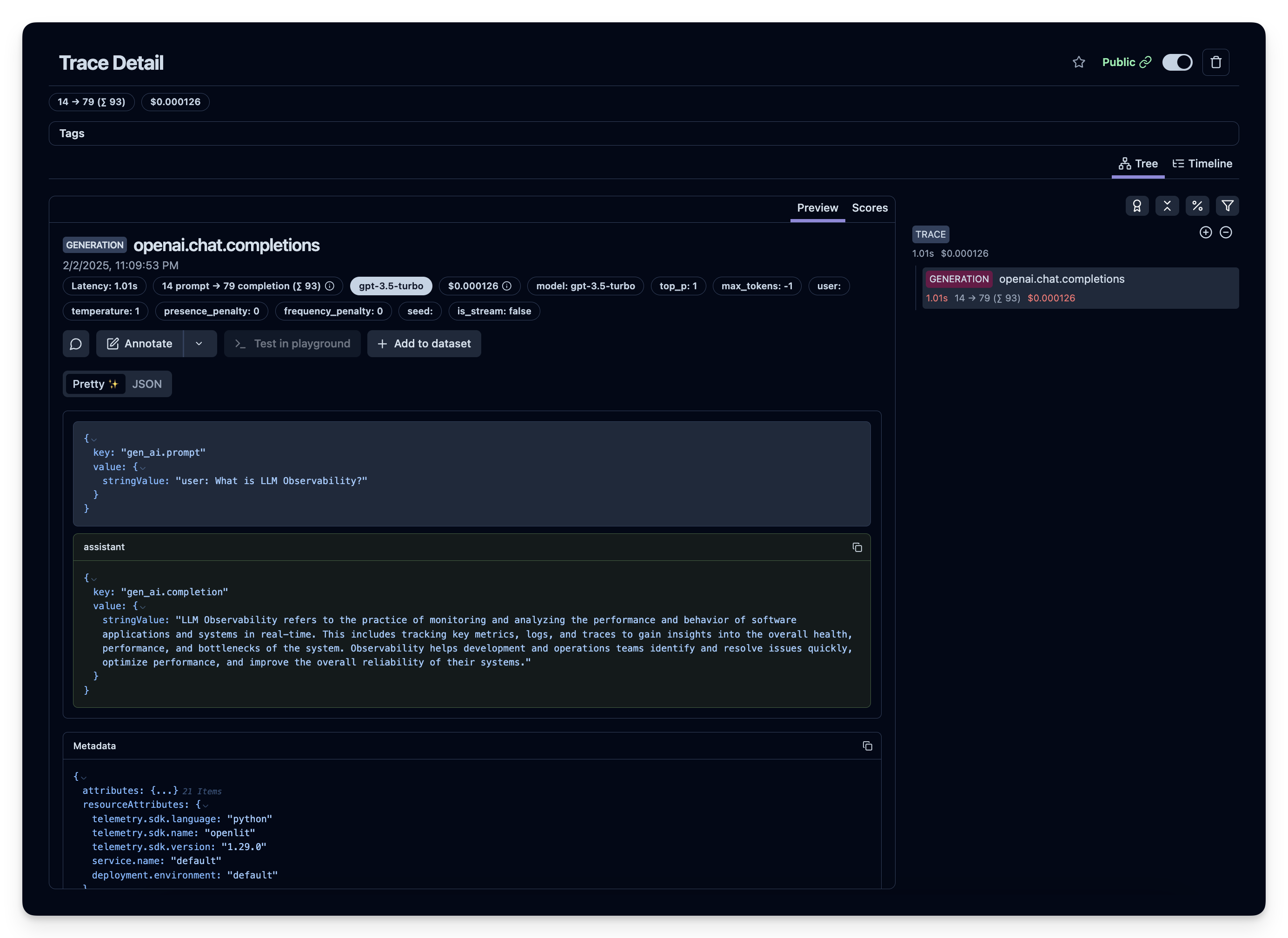OpenLLMetry Integration via OpenTelemetry
Langfuse provides a backend built on OpenTelemetry for ingesting trace data, and you can use different instrumentation libraries to export traces from your applications. In this guide, we showcase how to instrument your LLM application using the OpenLLMetry instrumentation library by Traceloop.
About OpenLLMetry: OpenLLMetry is an open source project that simplifies monitoring and debugging of your LLM application. It leverages OpenTelemetry to collect trace data in a non-intrusive manner.
Step 1: Install Dependencies
Begin by installing the necessary Python packages. In this example, we need the openai library to interact with OpenAI’s API and traceloop-sdk for enabling OpenLLMetry instrumentation.
%pip install openai traceloop-sdkStep 2: Configure Environment Variables
Before sending any requests, configure your environment with the necessary credentials and endpoints. Here, we set up Langfuse authentication by combining your public and secret keys into a Base64-encoded token. We also specify the Langfuse endpoint based on your desired geographical region (EU or US) and provide your OpenAI API key.
import os
import base64
LANGFUSE_PUBLIC_KEY=""
LANGFUSE_SECRET_KEY=""
LANGFUSE_AUTH=base64.b64encode(f"{LANGFUSE_PUBLIC_KEY}:{LANGFUSE_SECRET_KEY}".encode()).decode()
os.environ["TRACELOOP_BASE_URL"] = "https://cloud.langfuse.com/api/public/otel" # EU data region
# os.environ["TRACELOOP_BASE_URL"] = "https://us.cloud.langfuse.com/api/public/otel" # US data region
os.environ["TRACELOOP_HEADERS"] = f"Authorization=Basic {LANGFUSE_AUTH}"
# your openai key
os.environ["OPENAI_API_KEY"] = ""Step 3: Initialize Instrumentation
Next, initialize the OpenLLMetry instrumentation using the traceloop-sdk. Using disable_batch=True is recommended if you run this code in a notebook as traces are sent immediately without waiting for batching. Once initialized, any action taken using the OpenAI SDK (such as a chat completion request) will be automatically traced and forwarded to Langfuse.
from openai import OpenAI
from traceloop.sdk import Traceloop
Traceloop.init(disable_batch=True)
openai_client = OpenAI()
chat_completion = openai_client.chat.completions.create(
messages=[
{
"role": "user",
"content": "What is LLM Observability?",
}
],
model="gpt-4o-mini",
)
print(chat_completion)Step 4: View the Trace in Langfuse
After running the above code, you can review the generated trace in your Langfuse dashboard:
